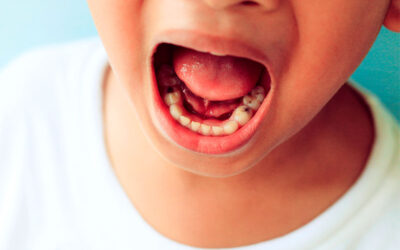Supporting Your Child’s Oral Motor Skills After Tongue Tie Release
The journey of addressing tongue tie issues in children often doesn't end with the simple procedure of tongue tie release. While the release itself can be a crucial step in improving oral function, it's equally important to support your child's oral motor skills as...
Tongue Tie and Cavities: Understanding the Connection
At Upbeat Pediatric Dentistry’s Tongue Tie Institute, we believe in providing comprehensive care that addresses not only the symptoms but also the underlying causes of oral health issues. One such issue that we frequently encounter in our practice is tongue tie, a...
Our Patient’s Story: A Journey of Healing and Relief
At Upbeat Pediatric Dentistry’s Tongue Tie Institute, we are committed to providing compassionate and comprehensive care to every member of your family, from the tiniest newborns to seasoned adults. One aspect of our practice that fills us with pride is our ability to...
Understanding the Link Between Tongue-Ties, Lip-Ties, and Colic in Babies
Welcoming a new baby into the family is a joyous occasion, but it can also come with its fair share of challenges, especially for new parents. One of the most frustrating experiences for parents is dealing with a baby who cries excessively or seems unable to find...
Unveiling the Connection Between Tongue Tie, Constipation, and Reflux
When we think about oral health, the last thing that comes to mind is often its correlation with gastrointestinal (GI) symptoms like constipation and reflux. However, there exists a profound link between tongue- and lip-ties and these common GI issues. At Tongue Tie...
Meet Our Expert: Dr. Vanessa Freitas, Leading the Way in Tongue Tie Diagnosis and Treatment
At Tongue Tie Institute, we take pride in our team's expertise in diagnosing and treating tongue tie effectively. Our founder and leading doctor is Dr. Vanessa Freitas, a highly skilled and passionate Board-Certified Pediatric Dentist with extensive experience in...
Why We Have Maggie, Our Therapy Dog
At Upbeat Pediatric Dentistry’s Tongue Tie Institute, we're dedicated to creating a warm and welcoming environment for our patients, where their comfort and well-being are our top priorities. One special member of our team who plays a significant role in spreading...
Unveiling the Impact of Tongue Tie on Singing and Vocal Quality
When we think of tongue tie, the first thing that often comes to mind is its effect on speech, feeding, and sleep. However, the impact of tongue tie extends far beyond these areas, reaching into the realm of singing and vocal quality. In this blog post, we'll...
Understanding the Impact of Untreated Tongue-Tie: Why Early Intervention Matters
Parents often face tough decisions when it comes to their child's health, especially when dealing with conditions like tongue-tie. Tongue-tie, medically known as ankyloglossia, occurs when the band of tissue connecting the tongue to the floor of the mouth is too...
Debunking Common Misconceptions About Tongue Tie
Tongue tie, also known as ankyloglossia, is a condition that affects the movement of the tongue due to a tight or thick lingual frenulum. While tongue tie is becoming more widely recognized, there are still many misconceptions and myths surrounding this condition and...
Tongue Tie and Sleep: Understanding the Connection
Quality sleep is crucial for the overall health and well-being of children, playing a vital role in their physical, cognitive, and emotional development. However, for children with tongue tie, sleep disturbances may be a common concern that often goes unrecognized. ...
The Power of Collaboration: Dentists, Lactation Consultants, and Speech Therapists Working Together for Tongue Tie Treatment
When it comes to treating tongue tie, a multidisciplinary approach involving dentists, lactation consultants, and speech therapists can make all the difference. Tongue tie, a condition where the lingual frenulum restricts the movement of the tongue, can have...












